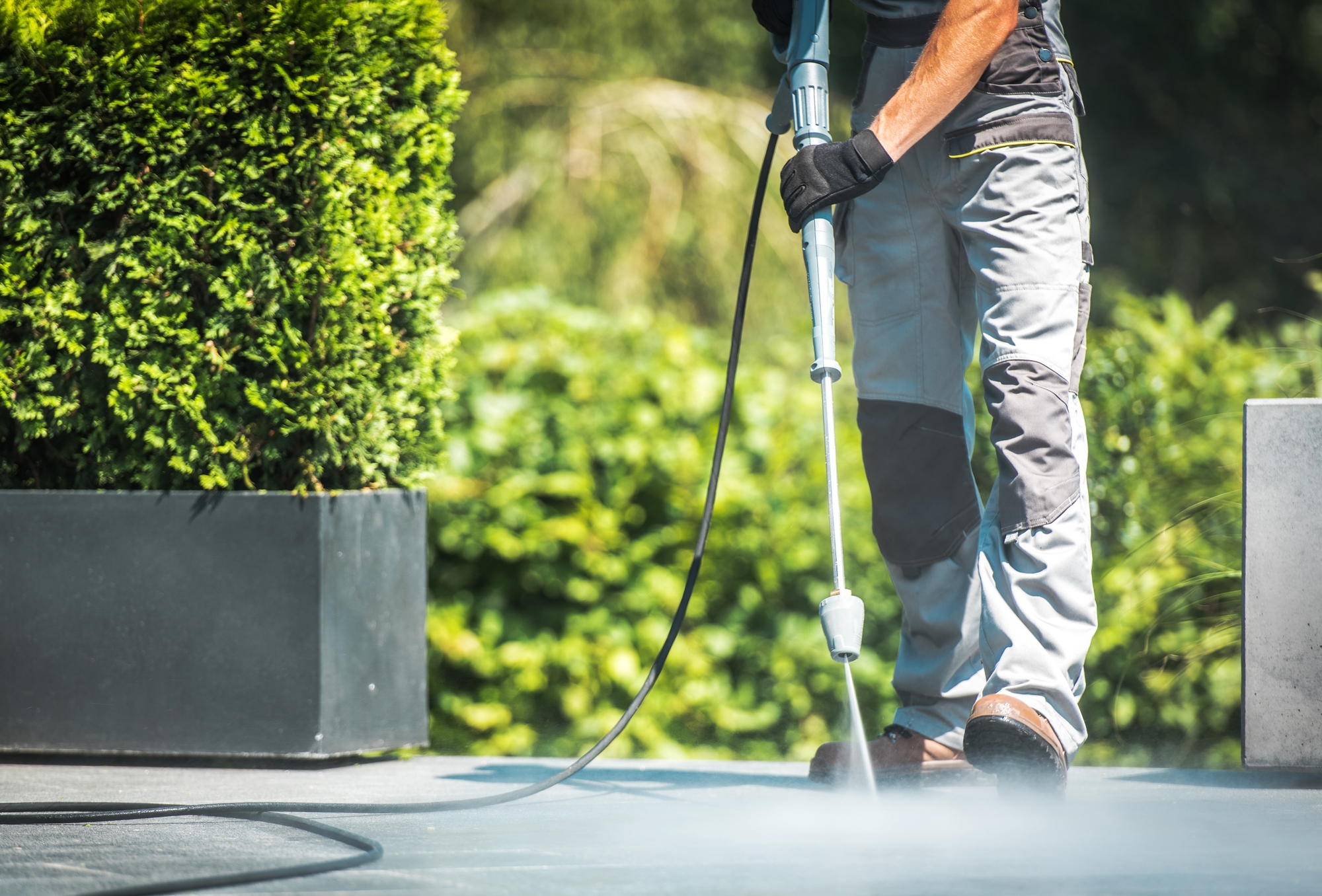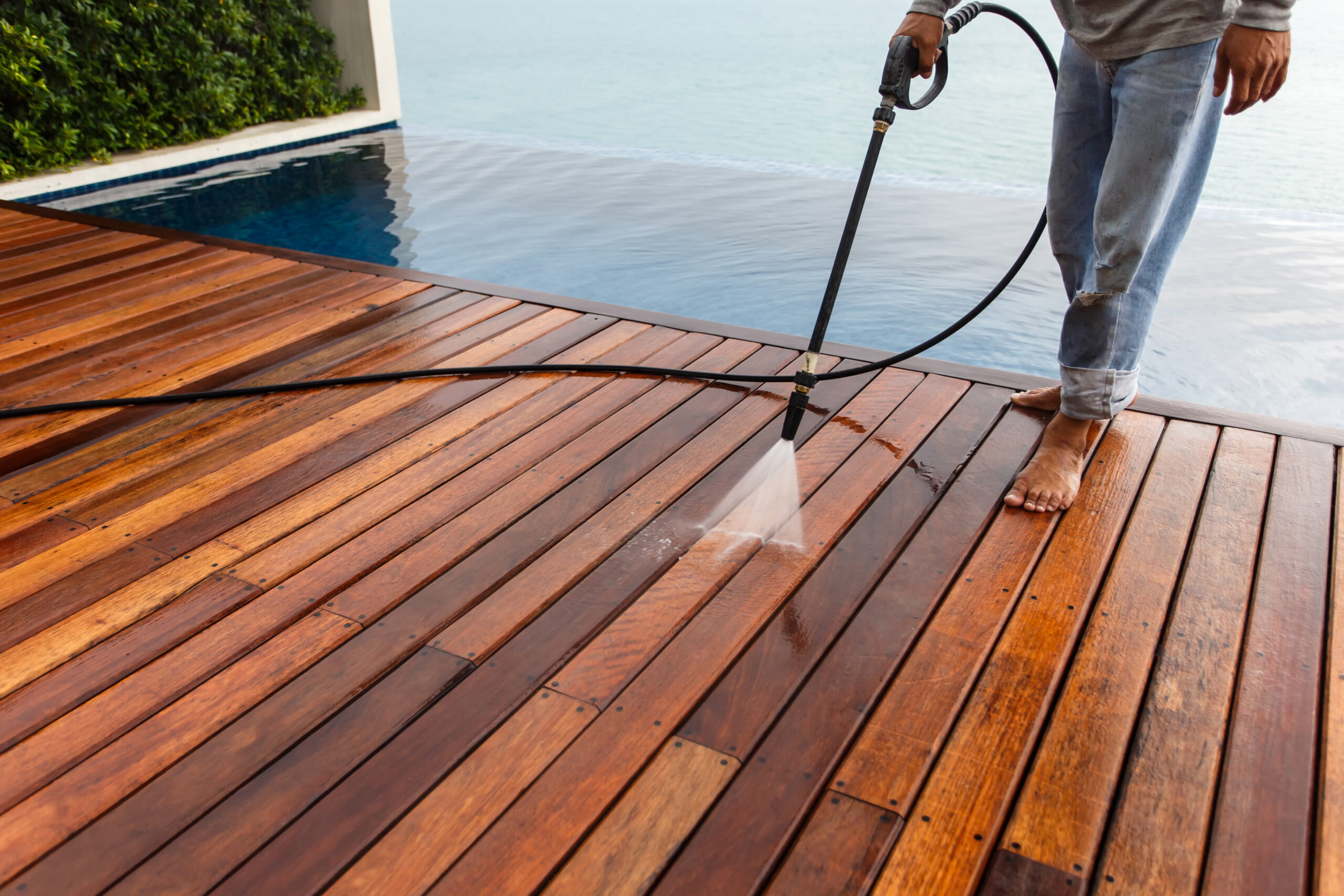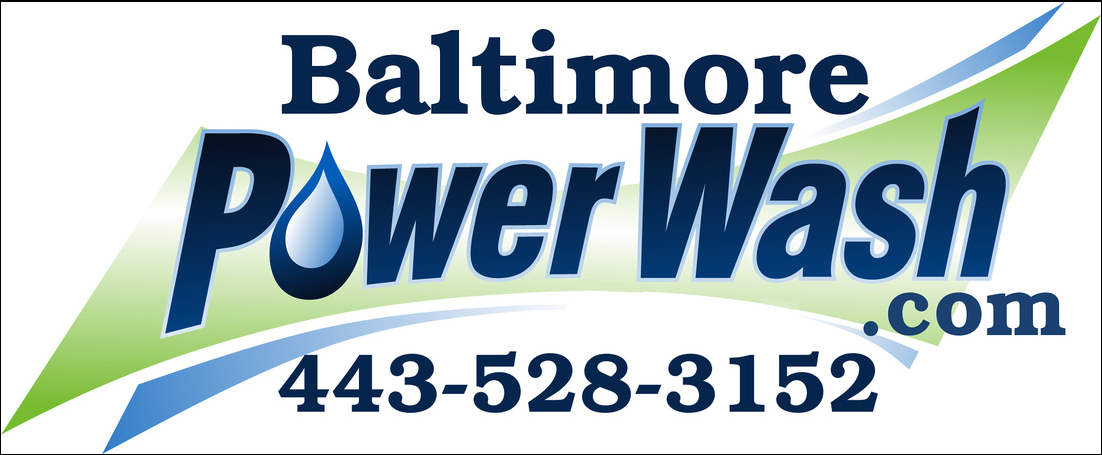Understanding Power Washing
If you own your own home here in the Baltimore area, you no doubt take pride in the appearance of your dwelling. Whether you’ve had your place for a couple of years or a few decades, you may have noticed the Southern Maryland elements may not have been so kind to your house.
Mildew, mold, algae, and pollen build up are quite common and overtime, become unsightly. Are you in search of a service that can freshen up your siding, roof, walkway, and more? We put together the ultimate guide to help you find the right solution to give your home that curb appeal!
Power Washing vs. Pressure Washing
If you are wondering what the difference is between these two, you are not alone. The confusion is due to the fact that they are commonly used interchangeably. So are they the same thing? Let us tell you the key differences and similarities:
Pressure washing uses highly pressurized water to remove debris from hard surfaces.
Power washing involves an ingredient that the other doesn’t -heat. The water in the jet stream is heated, being more apt to take on moss on the siding, oil stains on the driveway, and gum on the sidewalk. Both services are effective for residential jobs.
What Should You Not Pressure Wash?
In a pressure wash you are blasting the targeted surface area with 2000 pounds of force. That’s a lot of power! Obviously this would not be an option for every surface on your property as to avoid unnecessary damage. What are some areas to steer clear of? According to homes.com you should avoid:
- Laminar sandstone
- Asphalt roofing
- Anything painted
- Anything old
- Anything stained
Though these are to be avoided, there is a solution that can give your surfaces a more gentle clean.
The Alternative: Soft Washing!
If you’re looking to clean some of your weaker surfaces in a way that will not cause damage, soft washing is the way to go. How does it work? The key lies in the nozzle. The tip used will dissipate the water so that the force is not concentrated. This practice takes the pressure per square inch from 2000 to 500 making it a safer alternative. Along with a more gentle stream, biodegradable chemicals are added to the mix. The combination of these two is forceful yet safe enough to take on most surfaces such as your roof and siding.
DIY or Hire a Pro?
When you set out to do a job yourself you can gain a real feeling of satisfaction. It seems any task or job is just a video away. But is power washing your house a project you really want to take on yourself?
Some things to consider are the jet stream of water and how many pounds per square inch you are handling. These systems are designed to pack a lot of power. By way of comparison, your garden hose delivers force at 50 psi, whereas a standard nozzle for pressure washing delivers a punch at 2000 PSI! Handling such a powerful tool has actually sent diy-ers to the emergency room.


If your own safety alone isn’t enough to reconsider a DIY, consider the safety of your own property. Things like your siding, roof, stucco, and plants can be subject to damage when these tools are not properly used. The money you thought you’d be saving in doing this job yourself could easily be absorbed in repairs.
Going with a professional is the best way to go! Baltimore Power Wash are the experts to take on some of the toughest jobs!
We are well equipped to give your home a fresh new look! Contact Baltimore Power Wash for a free estimate today!

Recent Comments